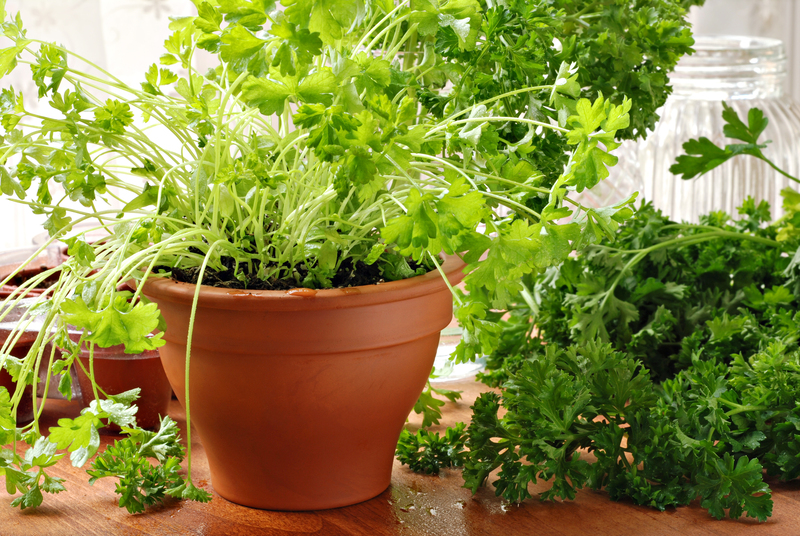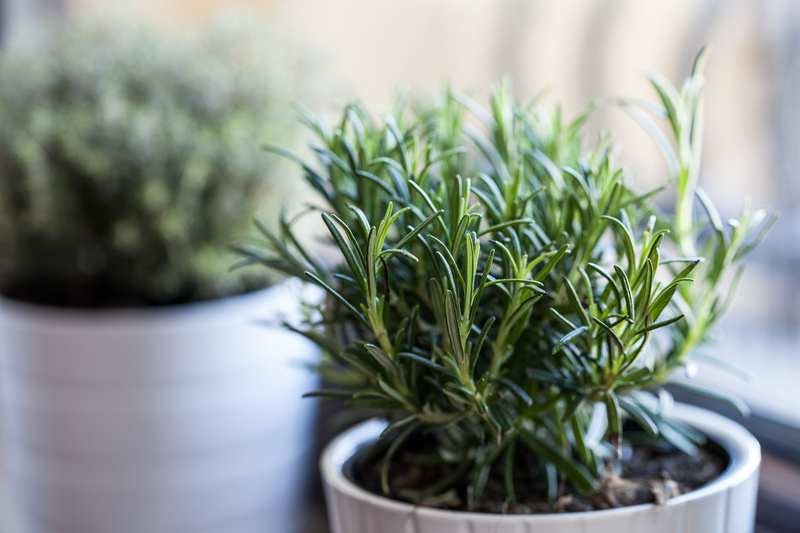Mastering the Basics: 9 Essential Gardening Tips for Beginners
Posted on 24/05/2025
Mastering the Basics: 9 Essential Gardening Tips for Beginners
Have you ever dreamed of harvesting your own fresh vegetables or creating a backyard oasis bursting with colorful flowers? Learning how to start a garden can seem intimidating, but with a solid foundation, anyone can become a successful gardener! This comprehensive guide covers nine crucial gardening tips for beginners--from understanding your soil to proper watering techniques. Read on, and soon you'll be confidently planting, nurturing, and enjoying a thriving garden of your very own.
Why Gardening Matters for Beginners
Whether you're interested in vegetable gardening for fresh produce, flower gardening to beautify your space, or simply seeking a new hobby, gardening offers benefits beyond just aesthetics. Growing plants can improve mental health, encourage sustainable living, and deliver delicious, homegrown food. That's why it's so important to learn the essential gardening basics, setting you up for years of satisfaction and success.

9 Essential Gardening Tips Every Beginner Should Know
Ready to get your hands dirty? Let's explore the top beginner gardening strategies that will help transform your patch of earth into a healthy and vibrant garden, no matter your level of experience.
1. Start with the Right Location
Choosing the best spot is fundamental for a flourishing garden. Plants crave sunlight, so pick a location that gets at least 6-8 hours of full sun daily. Consider accessibility for watering and harvesting. If your yard is shaded, look for shade-tolerant plant varieties. When space is tight, containers or vertical gardens are great alternatives for beginners.
- Tip: Observe your garden area throughout the day to note how sunlight shifts.
- Alternative: Use raised beds or pots if ground soil isn't suitable.
2. Know Your Soil
Soil quality is one of the most critical gardening basics for beginners. Healthy soil provides nutrients, improves drainage, and encourages robust plant growth. Start by digging a small test hole--good soil is dark, crumbly, and teeming with worms. If your soil is heavy clay or sandy, amend it with compost or organic matter to improve structure and nutrition.
- Test your soil: Many local extension offices offer inexpensive soil testing, which helps identify nutrient deficiencies.
- Enrich: Regularly add compost to feed the soil and retain moisture.
3. Choose the Right Plants for Your Climate
Your region's climate and growing season will heavily influence your gardening success. Picking crops and flowers adapted to your zone is a top gardening tip for beginners. Learn your USDA Hardiness Zone to understand which plants thrive in your local weather conditions.
- Check plant labels and seed packets for climate recommendations.
- When in doubt, consult a local nursery or cooperative extension office for advice.
4. Plan Your Garden Layout
Thoughtful garden planning helps maximize yields and prevents overcrowding. On paper or with online tools, map out where each plant will go, leaving enough space for growth and easy access. Consider the mature size of each plant and use companion planting strategies to boost productivity and deter pests naturally.
- Group tall plants on the north side to avoid shading shorter ones.
- Rotate crops each season to prevent disease build-up.
5. Invest in Quality Tools
Having the right gardening tools makes the job easier and more enjoyable. As a beginner, start with basics: a durable trowel, hand fork, pruning shears, a watering can or hose, gloves, and a rake. Quality tools last longer and reduce physical strain.
- Maintain your equipment: Wash and dry after use to extend lifespan and prevent rust.
6. Master Watering Techniques
Proper watering is a top garden care tip for beginners. Most plants prefer deep, infrequent watering to encourage strong root growth. Water early in the morning to minimize evaporation and avoid wetting leaves, which can invite disease.
- Check soil moisture before watering; over-watering is a common beginner mistake.
- Use mulch to retain moisture and reduce watering needs.
7. Control Weeds & Pests Early
Weeds steal nutrients and water from your plants, while pests can destroy crops overnight. Regular weeding and vigilance are key for beginner gardeners. Apply a thick layer of mulch or straw to suppress weeds, and manually remove them when they sprout. Monitor for signs of pests and use natural remedies (like neem oil or hand-picking) where possible to reduce chemical use.
- Encourage beneficial insects, such as ladybugs and bees, to naturally control pests.
- Rotate crops and avoid over-crowding to maintain plant health.
8. Feed for Healthy Growth
Just as humans need a balanced diet, plants also benefit from regular feeding. Fertilizing with organic compost, well-rotted manure, or balanced granular fertilizers provides essential nutrients for lush, productive growth. Be careful not to over-fertilize, which can harm roots and encourage weak growth.
- Feed every 2-4 weeks during the growing season, following label instructions.
- Focus on organic options for sustainable and safe gardening.
9. Observe, Learn, and Have Patience
The best gardening tip for beginners? Be patient and observant. Not every plant will thrive, and every garden faces setbacks. Keep a gardening journal to record what works (and what doesn't), and don't be discouraged by early mistakes. With experience, you'll develop an intuitive understanding of your plants' needs and adapt your approach each season.
- Join local and online gardening communities for support and advice.
- Regular observation helps spot problems before they become serious.
Bonus: FAQs for Gardening Beginners
What's the best time to start gardening?
Most gardens are planted in spring after the last frost date. However, regions with mild climates can grow year-round. Research your local frost dates and plant accordingly.
How often should I water my garden?
Most vegetables and garden plants need 1-2 inches of water per week. Always check the soil before watering--if the top inch is dry, it's time to water deeply.
What vegetables are easiest for beginners?
Some beginner-friendly vegetables include:
- Lettuce and salad greens
- Radishes
- Zucchini and summer squash
- Tomatoes (especially cherry types)
- Peppers
- Herbs like basil and parsley

Additional Tips for New Gardeners
- Stay consistent: Regular garden maintenance prevents problems from escalating.
- Label your plants: Mark each row or pot so you remember what you've planted.
- Don't forget to mulch: Mulching saves time and conserves moisture.
- Have fun! Remember, gardening is about learning--each season brings new experiences and lessons.
Conclusion: Your Journey to Successful Gardening Starts Now
With these 9 essential gardening tips for beginners, you're ready to cultivate a beautiful and bountiful outdoor space. Remember to start small, embrace the learning process, and enjoy every part of your gardening journey. By mastering the basics--location, soil health, plant choice, layout, tools, watering, weed and pest control, feeding, and patience--you'll unlock the secrets to a lush, productive garden that brings joy for years to come.
Happy gardening! For more gardening tips, ideas, and expert advice, bookmark this guide and share it with fellow gardening enthusiasts.
Latest Posts
Building Your Garden's Defenses Against Strong Winds
Creating the Perfect Habitat for Your Orchids
Transform your space with 9 fast-growing hedges for privacy
Innovative Ways to Develop Charming Garden Seating Spaces
Eco-Friendly Gardens: Silent Warriors Against Climate Change

